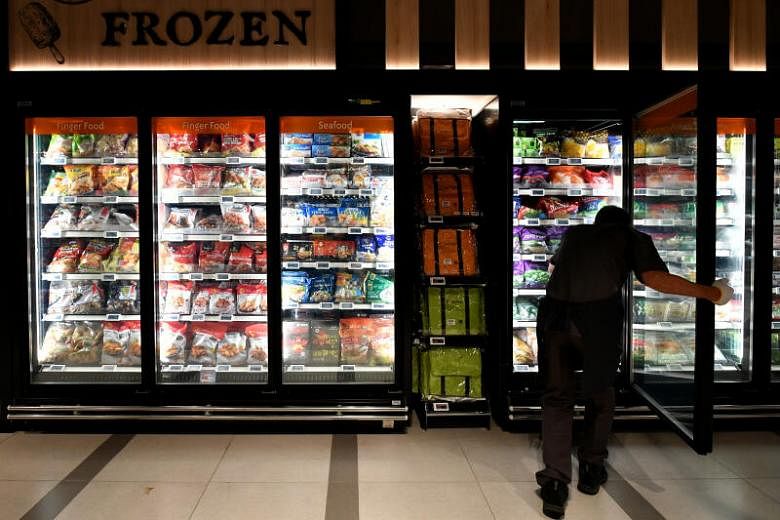SINGAPORE - Following recent reports that the Sars-CoV-2 - the virus responsible for Covid-19 - was found on frozen beef and tripe in China, The Straits Times looks at how frozen food and food facilities could be possible modes of transmission and the risk of contracting the virus in such a manner.
Q: Should I be worried about contracting the Covid-19 virus through frozen food or food packaging?
A: The World Health Organisation (WHO) has said it is unlikely for people to contract Covid-19 from food or food packaging, and that transmission via contaminated food is not a major infection route.
Likewise, the Singapore Food Agency posted on its website that it is "not aware of any evidence" suggesting that the virus can be transmitted to humans via food or food packaging and equipment.
However, it added that contact with these items is "no different" from contact with common surfaces such as lift buttons and door knobs, which could be easily contaminated with the Covid-19 virus. But the risk of possible transmission through these surfaces remains low. As such, it is important to maintain good personal hygiene.
Q: Should Singapore be screening all of its frozen food imports?
A: No, as the risk of transmission from frozen food is low.
Associate Professor Hsu Li Yang, programme leader of infectious diseases and co-director of global health at the National University of Singapore's Saw Swee Hock School of Public Health, said: "At present, the cost of screening all frozen goods is high relative to the potential benefit, and other routes of transmission are more likely and present a higher risk".
He added that Singapore could consider screening all its frozen food if it is ultimately aiming for zero Covid-19 cases and after it has accounted for and controlled all other common routes of virus transmission and importation.

Q: What are the implications of the virus persisting on the packaging of these frozen goods and should people be wary of frozen food imports?
A: Professor Dale Fisher, senior consultant at the division of Infectious Diseases at the National University Hospital, said that there is circumstantial evidence showing that food handlers may become infected from imported virus on fresh or frozen food. However, by the time packaged food gets to consumers, there is almost no chance that the virus would still be on the packaging. Even if it were, there would have to be an adequate infective dose to be a route of transmission.
Dr Danielle Anderson, the scientific director of the Duke-NUS Medical School ABSL3 laboratory, said that there is currently no definitive evidence of people being infected from food packaging. As a safety precaution, they should make sure that they cook food thoroughly and wash their hands well after handling raw food, as these measures can also help prevent food borne diseases.
Q: Can the Covid-19 virus be spread through cooked food?
A: There is no evidence that people can catch Covid-19 from cooked food, according to the WHO. The Covid-19 virus can be killed at temperatures similar to other known viruses and bacteria. Therefore, foods such eggs and all meat - including poultry - should be cooked to at least 70 deg C.
Q: Should we be worried about food processing and cold storage facilities? Are they a hot spot for the virus to spread?
A: Given that the virus tends to survive longer in colder temperatures, the conditions at these facilities tend to be more favourable for its transmission and spread.
Dr Anderson feels that the facilities are a concern as workers are often in close proximity to one another, and may be shouting or talking loudly to each other. Masks may also become damp and ineffective at colder temperatures. She noted that many of these workers fear losing their job if they take days off, making them more likely to come to work even when sick.
All workplaces, including local food processing facilities, have to adhere to Safe Management Measures. Employers who fail to do so may face stop-work orders or financial penalties.












